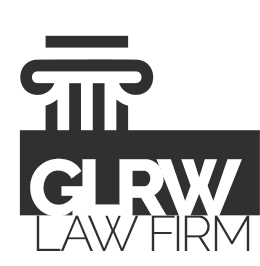01 Feb How Do You Evict a Commercial Tenant in New Jersey?
Commercial landlords can bring eviction proceedings against tenants for any number of reasons, including non-payment of rent, holding over past expiration of a lease term, and violation of the terms and conditions of how a business manages its operations in a commercial leased space. The real estate lawyers at GLR&W LLC in Mount Holly help New Jersey property owners to take action with commercial eviction proceedings in the most expeditious manner possible such that commercial tenants will vacate their leased space with a minimum of problems or delays.
New Jersey law dictates how a commercial tenant can be evicted from a leased space
Our NJ eviction lawyers initiate a commercial eviction on behalf of a landlord by filing a summary disposition complaint against a defaulting tenant in the New Jersey State Superior Court in which the property is located. A majority of commercial buildings are owned by corporations or trusts, and tenants in commercial leased spaces are generally corporations or partnerships that will be represented by their own lawyers.
The complaint will clearly identify the lease, the address of the commercial property, and all rents and fees that the commercial tenant owes to the landlord. New Jersey law encourages commercial landlords and tenants to resolve payment and other disputes apart from eviction litigation, and the court will likely scrutinize the relationship to verify that the landlord has given the commercial tenant proper notice and an opportunity to cure any defaults.
A default judgment will be awarded against a commercial tenant that does not respond to an eviction complaint
A commercial tenant can challenge the landlord’s allegations of default, in which case the matter may go to trial. In the alternative, if the tenant does not challenge the complaint, the court will issue a judgment of eviction and will award possession of the commercial space to the landlord. The tenant then has a period in which it can redeem the eviction by paying all past due rent and outstanding charges. Tenants can also appeal the judgment if they believe it was entered on an incorrect legal or factual basis.
The landlord applies for a warrant of removal if the tenant fails to redeem the eviction
The last step in commercial tenant evictions requires a property owner to apply for a warrant of removal of the tenant within 30 days after the court issues a judgment of eviction. Once the warrant is granted, the landlord then enlists the aid of a constable or county sheriff to vacate the tenant from the commercial space and to recover possession of that space. If the tenant leaves personal property in the space, the landlord can treat that property as having been abandoned and can remove or liquidate it and apply the proceeds to any back rent or other monetary damages that the court might have awarded in conjunction with the judgment of eviction.
Call the New Jersey Eviction Lawyers at GLR&W LLC
The real estate and eviction lawyers at GLR&W LLC have represented landlords in New Jersey commercial evictions for more than 50 years. New Jersey is a judicial eviction state that requires landlords to pursue evictions through legal processes. Our attorneys have the knowledge and experience to expedite that process, which preserves the value of commercial properties by enabling the landlord to re-let the space as quickly as possible.
Please call our offices in Mount Holly to schedule a consultation with one of our commercial eviction lawyers for more detailed advice on how to vacate a defaulting tenant from your commercial property in New Jersey.



Sorry, the comment form is closed at this time.